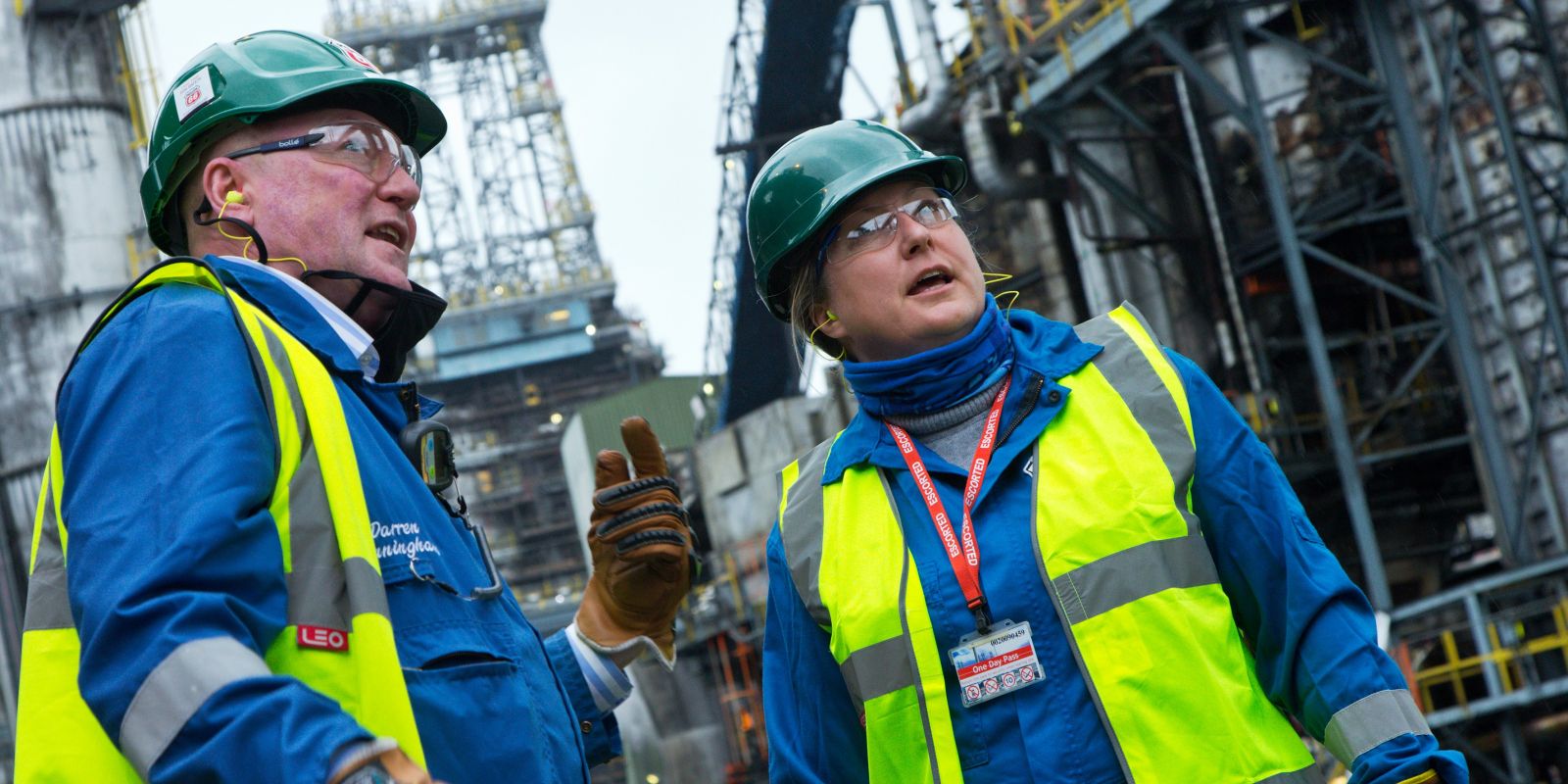Darren Cunningham is a Greater Lincolnshire LEP Board Director, Lead Executive UK and General Manager of the Humber Refinery, Phillips 66. With over 30 years of experience in various refining and commercial roles, and assignments in Singapore and across America working in business development and corporate strategy roles, Darren is now proud to be leading the Humber Refinery’s decarbonisation agenda and shares his thoughts & hopes for the future with us in this month's sector blog.
In December 2015, the historic Paris Agreement was adopted by consensus by all members of the United Nations Framework Convention on Climate Change. To date, 197 countries have agreed to gradually reduce the use of fossil fuels and CO2 emissions to reach net carbon neutrality by 2050 and keep global warming below 2°C by the year 2100. By replacing fossil fuels with clean, renewable energy, sources such as on and offshore wind, solar power or biomass, we can enjoy low carbon methods for heating and electricity that do not contribute to climate change.
But these are demanding times. The world remains hungry for energy, often in conflict with climate change calls for lower emissions. Meanwhile the UK government continues to push for green industrial revolution and announced a substantial £1bn pay out for a decarbonisation strategy in March this year. The Department of Business Energy and Industrial Strategy (BEIS) published a comprehensive decarbonisation strategy in parallel, placing the industrial sector at the core of the UK’s ambition to reach net-zero carbon emissions by 2050, which expects a 66% reduction in emissions in NHS, schools and industry within the first 15 years.
Greater Lincolnshire can appear from a distance as an area of rolling countryside, tourism and agriculture, but is actually at the forefront of the UK’s Green Industrial Revolution - creating profitable opportunities for Low Carbon energy and industrial businesses aligned with ambitious sustainability goals. Our northern border on the Humber estuary is home to some of the largest industrial developments, and subsequently generates approximately 40% of all UK industrial emissions, amounting to more than 12 million tonnes of CO2 per year; the largest industrial cluster in the country. As a result of that, it also offers some of the biggest opportunities for decarbonisation and a net zero economy.
At the refinery, from external appearance nothing much has changed in its 50 years of being a land mark off the A180. However, behind the scenes an incredible change has been transitioning for several years now, and continues to evolve.
Starting my career here at the Humber Refinery 30 years ago, and loving this region I have lived in for most of my life, I feel proud and honoured to be in a position now where I can make a tangible difference and drive our industrial decarbonisation forward for the benefit of future generations and the planet, and from a more personal perspective too - as a parent and grandfather.
We are now Europe’s sole producer of synthetic graphite which is a key component for the batteries needed to power electric vehicles. We export this across the globe and are ready and able to support the development of the UK clean battery evolution. We are also exploring future avenues of energy generation and storage to ensure we continue to meet demand in the evolving energy landscape. The Humber Refinery was the first UK refinery to introduce used cooking oil into its process to make low carbon liquid fuels and we have invested significantly in the last three years to increase this capacity.
A truly exciting area though is the collaboration taking place between industries, and the technologically advanced projects underway. We are working at pace with Orsted and ITM to develop the Gigastack Project producing green renewable hydrogen at scale. This renewable hydrogen will replace carbon based hydrogen on our refinery and potentially provide green hydrogen to other users.
For another project called Humber Zero, we are creating a carbon capture and hydrogen hub which gives affordable and low carbon energy supply and energy storage to industry and the national grid, and would ultimately supply renewable electricity for homes and businesses whilst creating tens of thousands of jobs. The result of this and the Humber north bank (H2H Saltend) combined projects represent a whopping 25 million tonnes reduction in CO2 emission per year.
We are also working with Vitol, who own and operate a 1200 MW power plant in Immingham and looking how to capture the carbon emissions from the Immingham Industrial hub, and are working with others to explore how this can then be transported and safely stored under the North Sea. The V-Net Zero Project, led by Harbour Energy would re-use the old Theddlethorpe gas terminal to transfer the CO2 for storage in the depleted Viking and other gas fields off the Lincolnshire coast.
Over just a few years, the Humber Energy Estuary has been transformed into one of the world’s leading hubs for clean energy. The industry predicts that employment will rise from 7,200 to 27,000. Offshore wind manufacturing, installation, operations and maintenance businesses all now have firm local foundations, creating sustainable skilled jobs and attracting a wider supply chain.
It may not be obvious at first, but the transition to net zero really is a massive opportunity for Greater Lincolnshire bringing jobs, prosperity and opportunity. I am proud and excited at the role Phillips 66, the Greater Lincolnshire LEP, and other partners are playing in laying the foundations to realise these opportunities.
The Green Industrial Revolution is happening right here, right now.
Darren Cunningham
Greater Lincolnshire LEP Director, Lead Executive UK & General Manager of the Humber Refinery, Phillips 66


